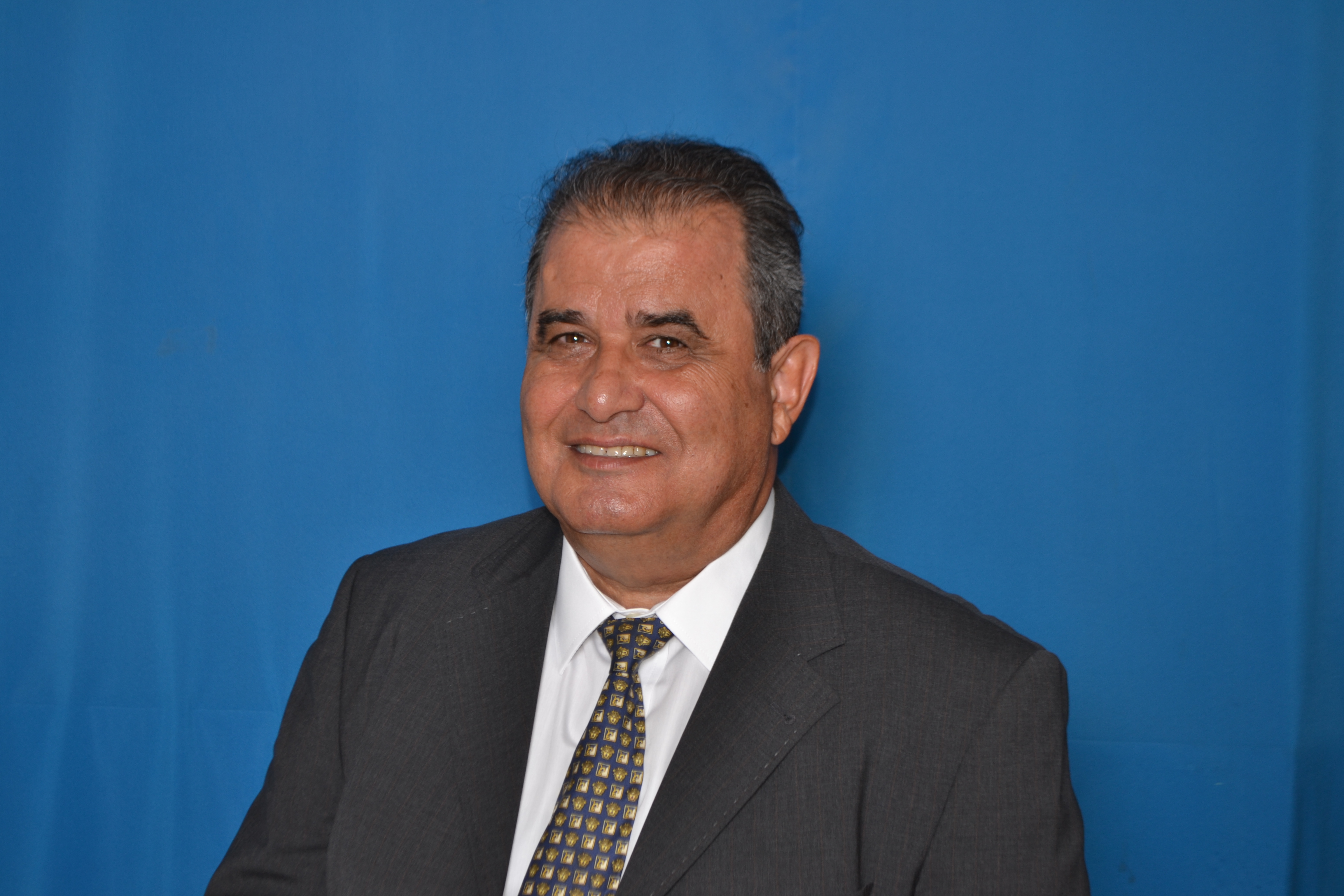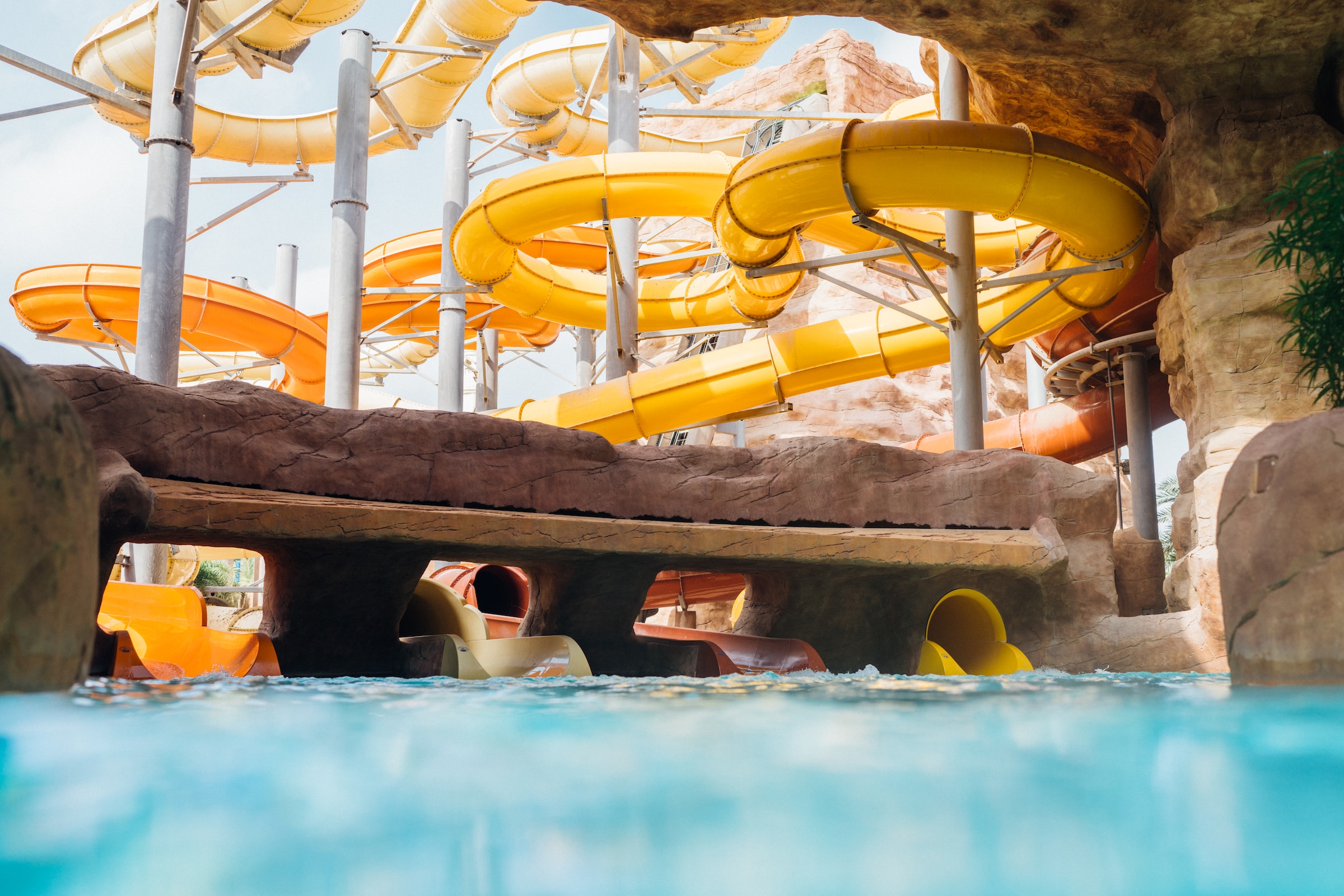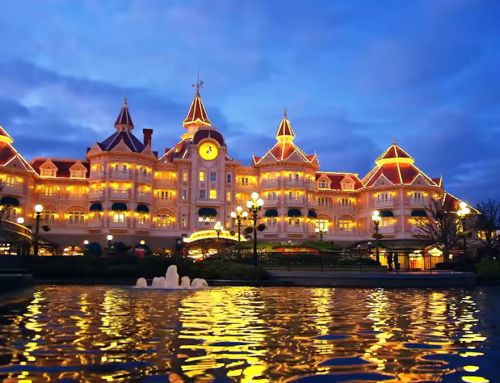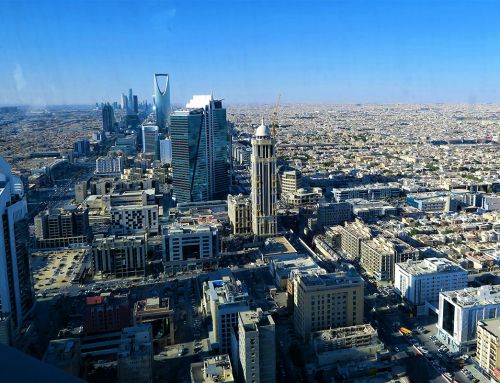This time we introduce you to a civil engineer who, thanks to chance, has built almost everything in half the world. He started with the construction of a bus station in Athens, the capital of Greece, his country of origin; he continued with one of the first water parks in the region, in Crete; he went on to the United States and then built more parks in Romania, Serbia and Turkey; he built roads, large hotel complexes, a theatre, marinas and, finally, the Lusail sports stadium in Qatar. He is currently working on one of the world’s largest water parks in Saudi Arabia.

Amusement Logic: You studied Civil Engineering at the National Technical University of Athens. Why did you choose this discipline?
Manos Fiorakis: Ever since I was a small child, whatever toy I could get my hands on, I would take a knife and start dismantling it. My mother always told me the story of how I disassembled the clockwork mechanism of this small tank within less than an hour. I guess I was already an engineer as a baby. I could have become a surgeon like my father, I would probably have been good at it, but I always saw him running around day and night, helping sick people in the middle of the night. I didn’t like that life so I chose engineering instead. And in the 60s and early 70s, civil engineers were the stars.
A.L.: And how did you end up in the entertainment industry?
M.F.: Well, right out of college I started working with a friend of mine on several public works projects, particularly the big bus station in Athens and a lot of sewage infrastructure. But you know, life is a series of coincidences, starting with how my mother met my father and brought me to life. Anyway, my office in Athens was next to a store selling baby clothes, and the owner happened to be a guy who wanted to build a waterpark. He came to see me one day and asked me if I knew how to build one, and I said “no but I can learn to”. He liked my response because all the other engineers he had consulted were saying they knew, but actually they knew nothing, or were afraid to get on board with something so new in Greece. We’re talking the mid-80s.
So we drove together throughout Europe for 3 months, visiting Italy, France and Spain where the first water parks were already popping up. We talked to people there and asked a lot of questions. We got many answers and good advice. You won’t believe it, but I still keep my notes of that trip with all the measurements I took at the parks we visited, such as Aquacity in Mallorca or Riccione Water Park in Italy. And with all that research, we went back to Crete to choose the best location and we found the right companies to help us develop the project. Remember, back then we would receive drawings only by fax! And we succeeded in building the first waterpark in Greece in less than eight months and it still operates to this day, although under a different owner and a different name.
After that first one, waterpark projects popped up everywhere: Mykonos, Korfu, Rhodes, Corinth, Paros… and I was involved in all of them. I helped select the land, I helped with the design and the construction. I even got involved in finding financing solutions!
A.L.: So why did you leave Greece and move to the USA?
M.F.: Just as with everything else, it was because of another coincidence. After the waterpark craze eased off, I had to look for work. A friend of mine told me about ALTE, a big construction company that needed a Project Manager for some roadwork in the north of Greece, so I sent them my CV. I was surprised to receive a call saying the General Manager wanted to see me in person. I went to see him, George Dritsas, a man who helped me a lot. It turns out that he was interested in my waterpark experience because his CEO, Apostolos Allamanis was in conversations with Goldman Sachs to purchase the company Ogden Entertainment, one of four sectors of the Ogden Group which operated eight parks around New York and was going to build another one. He said there were plenty of civil engineers for building roads, but not many who knew about building Water and Theme parks. In addition, they had acquired Estrelia, a company who owned an excellent land in Glyfada, the best area in the coastline of Athens, and they wanted to develop a Water park, Entrainment centre, cinemas, and to rebuild the world famous resort existing there 30 years ago, place for vacation even for the King of Saudi, Ibn Saud in the ’60s. I was appointed the GM of Estrelia and the Technical Director of the Parks in the USA.
A.L.: And how different was it for you working in the US as compared to Greece?
M.F.: It was another world. The projects in Greece were small and everything was complicated. If you try to do something big, everyone seems to fight you. Whereas in the US, there are clear procedures and the projects are much bigger, so the effort is similar for greater outcomes. The first project I was in charge of was Jazzland, a 600.000 m2 theme park in New Orleans, something unthinkable in Greece. We also had 8 other Water Parks and Theme Parks all around the USA.
A.L.: So why didn’t you stay in the USA?
M.F.: Well, the 9/11 attacks changed many things. The stock market collapsed and my bosses lost everything. They could no longer support their operations in the US, so they sold their park portfolio to Premier, which was later passed on to Six Flags, and I had to look for new opportunities again.
I got involved in the construction of sports stadiums and large hotels. One of the stadiums was used later for the 2004 Summer Olympics in Athens and amongst the hotels were some of the largest ones in the country, the Imperial Thalasso in Kos and the Corfu Imperial in Corfu Island, developed by Grecotel. I still wasn’t afraid to learn new things and that is how I extended my experience into large venues and hospitality resorts. Then I got into the show business when I was appointed to build the Pantheon Theatre of Athens, better known as Athinon Arena, one of Europe’s largest music venues, which was built in a record time, a real fast-track project. That made a name for me in Greece.
Afterward and for 4 years, I was the Project Director for Zeus Capital Managers, a Multinational Fund developing residential projects, with central office in Athens, but with all developments around the region, in countries like Romania, Montenegro, and Serbia. After the Olympics, and when all Greeks thought they would become millionaires due to the successful Olympics, the Lehman Brothers crisis happened and it hurt us very badly, especially the projects in Eastern Europe. I was fortunate enough to get a call from Greece’s largest developer, Germanos, a person who owns several mobile telephone companies and battery factories. He wanted me to manage the construction of his new headquarters and that project kept me going for a while. But even that project was cancelled in 2012, due to the upcoming terrible financial crisis, so I really had to start all over again. The situation in Greece at that time was described with one word: “Crisis”.
A.L.: That is when you moved to the Middle East?
M.F.: Yes, I started looking for work in the Gulf countries. I had no experience in the region and was 59 years old at the time. Everyone said, Manos, you are crazy, you are too old to get a job there! But I went to Abu Dhabi anyway with my CV and tried my luck. I visited a dozen companies within the first week, told them all the experiences I had and of course, another one of those coincidences happened.
One construction consulting firm that I visited put me in touch with their colleagues in Qatar, where their head office had a Greek director. He asked me to come over the next day and after that interview I spent over 6 years working with them. We built a huge marina for the Qatari Coast Guard, my first experience in GCC.
Due to my good work in the Marina, I was asked by KEO Consultants, a very good firm in Qatar, to join them for a Marina in the middle of Doha. Afterwards, I was appointed PM, to finish the construction of the Lusail Multipurpose Indoor stadium, the biggest indoor stadium of the Middle East, with unbelievable challenges. But we did it again! I also worked for some months on the construction of Al Bayt Stadium of Al Khor, one of the largest stadiums of Qatar as Project Manager for KEO, and for 2 years for a large residential development in The Pearl, for UDC.
Then, that I moved to Oman to manage a really huge Leisure & Tourism development there, which was unfortunately put on hold due to the Covid pandemic and the Sultan’s passing away. Yet I have been lucky again and now I am involved in the great Saudi projects of SEVEN, the next big thing happening in this fascinating region. I work for WSP Consultants, on one of the best and most interesting waterparks in the world.
A.L.: Most professionals are retired at your age. Where do you find the energy to keep going?
M.F.: You know, the problem is that when you have the experience you don’t have the energy, and when you have the energy you lack experience. Fortunately, I have more energy than many 40-year olds. I go walking and they cannot walk as fast as me. And I’m 69 now!
A.L.: What is your secret? Maybe you have some good advice for us.
M.F.: Yes, certainly. My advice would be to choose the right mother (haha).
A.L.: Do you have any intention to retire?
M.F.: I am already, theoretically, retired, but not practically. I enjoy myself! Seriously, I will find something to do as long as I can keep going. I like the marine environment and construction, so maybe in the future I will build things on the sea, or why not, I will find a way to build my big dream, The Greek Mythology Park in Athens.
RELATED STORIES
Newsletter



